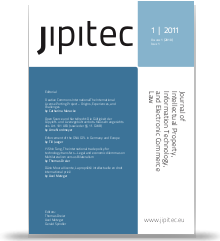TV Signal Delivery to Cable Operators and DTH Platform Operators
Keywords:
atellite DTH platform, audiovisual media service, cable operators, collecting society, broadcasting, communication to public, equitable remuneration, mandatory management by collecting society, media service provider, retransmissionAbstract
The paper discusses new business models of transmission of television programs in the context of definitions of broadcasting and retransmission. Typically the whole process of supplying content to the end user has two stages: a media service provider supplies a signal assigned to a given TV channel to the cable operators and satellite DTH platform operators (dedicated transmission), and cable operators and satellite DTH platform operators transmit this signal to end users. In each stage the signals are encoded and are not available for the general public without the intervention of cable/platform operators. The services relating to the supply and transmission of the content are operated by different business entities: each earns money separately and each uses the content protected by copyright. We should determine how to define the actions of the entity supplying the signal with the TV program directly to the cable/digital platform operator and the actions of the entity providing the end user with the signal. The author criticizes the approach presented in the Chellomedia and Norma rulings, arguing that they lead to a significant level of legal uncertainty, and poses the basic questions concerning the notion of “public” in copyright.Downloads
Published
2011-07-26
Issue
Section
Artikel

